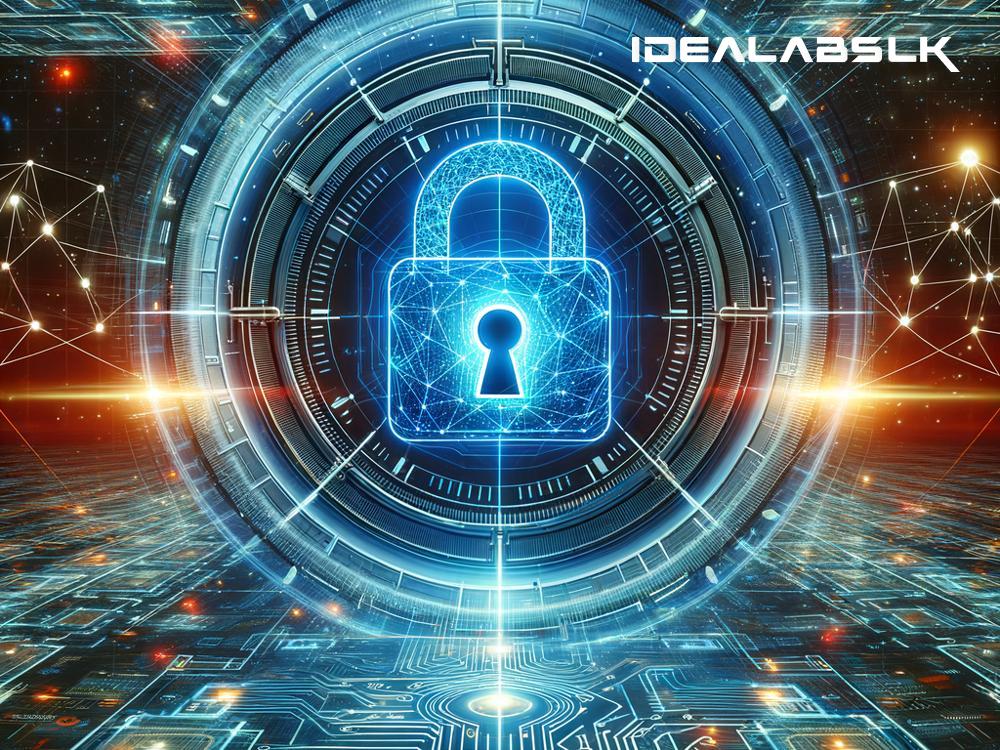Understanding Blockchain and Its Potential for Future Data Protection
In today’s digital age, our lives are intertwined with data. From social media profiles to online banking information, our personal data is scattered across the internet. However, with increasing digitalization comes the risk of data breaches, hacking, and unauthorized access to personal information. Enter blockchain, a revolutionary technology that has the power to transform data protection and enhance privacy in unprecedented ways. But what exactly is blockchain, and how does it promise a safer future for our data? Let's dive in and explore.
What is Blockchain?
Imagine a digital ledger that is secure, decentralized, and impossible to tamper with. That's blockchain in a nutshell. Blockchain technology allows data to be stored in blocks that are linked (or "chained") together in a transparent, secure, and immutable manner. Once information is recorded in a block, altering it without detection becomes virtually impossible. This key characteristic makes blockchain an appealing solution for securing sensitive data.
The Ripple Effect of Blockchain in Data Protection
Blockchain's impact on data protection is profound, offering a new paradigm in how we approach security in the digital realm. Here are some key areas where blockchain is set to redefine the future of data protection:
-
Enhancing Privacy: Blockchain can protect user privacy better than traditional online databases. Through advanced cryptography, blockchain ensures that data can be read and processed only by authorized parties. This minimizes the risk of unauthorized access and ensures that personal data stays private.
-
Decentralization as a Shield: Unlike traditional databases that store information in a central location, blockchain is decentralized. This means data is distributed across a network of computers, making it extremely difficult for hackers to compromise data integrity through a single entry point. In a blockchain-based system, data protection is not just about securing a perimeter but ensuring that even if a breach occurs, the system remains robust and data remains secure.
-
Immutable Audit Trails: One of the standout features of blockchain is its ability to provide a tamper-proof record of transactions. Every transaction on the blockchain is time-stamped and recorded across several computers. This creates an immutable audit trail that can be invaluable for verifying data authenticity, a crucial aspect of data protection.
-
Empowering Individuals with Data Ownership: Blockchain encourages a shift from centralized data control to individual data sovereignty. Individuals can manage who has access to their data and under what conditions, using blockchain-based identity management systems. This not only enhances privacy but also puts control back into the hands of the individual, marking a radical shift from current data management practices.
Real-World Applications and Future Prospects
Blockchain's potential in data protection is not just theoretical. Several industries are already exploring blockchain solutions to enhance data security. Here are a few examples:
-
Healthcare: Blockchain can secure patient records, ensuring they are accessible only to authorized personnel, thereby protecting sensitive health information.
-
Finance: In the banking sector, blockchain's secure and efficient transaction ledger can prevent fraud and unauthorized access to financial data.
-
Governance: Governments can use blockchain for secure and transparent voting systems, protecting the integrity of the electoral process.
The future of blockchain in data protection looks promising, with ongoing research and development aimed at overcoming current limitations, such as scalability and energy consumption. As these challenges are addressed, we can anticipate broader adoption of blockchain technology across various sectors, heralding a new era of data protection.
Embracing a Blockchain-Protected Future
As we move towards an increasingly data-driven world, the significance of robust data protection mechanisms cannot be overstated. Blockchain technology, with its decentralized nature, encryption, and transparency, offers a groundbreaking approach to securing personal and organizational data. While still in its nascent stages, the potential applications of blockchain in data protection are vast and varied.
For individuals, businesses, and governments, embracing blockchain technology could mean the difference between staying vulnerable in the face of cyber threats and stepping into a future where data integrity and privacy are paramount. The journey ahead is one of exploration, innovation, and, most importantly, enhanced security in our interconnected world.
In conclusion, blockchain stands at the forefront of revolutionizing data protection. It brings forth a promising horizon, promising a safer, more secure digital landscape. As we continue to chart this terrain, the future of blockchain in data protection appears not just optimistic, but imperative. It's a future where data breaches and privacy invasions become relics of the past, thanks to the transformative power of blockchain technology.

